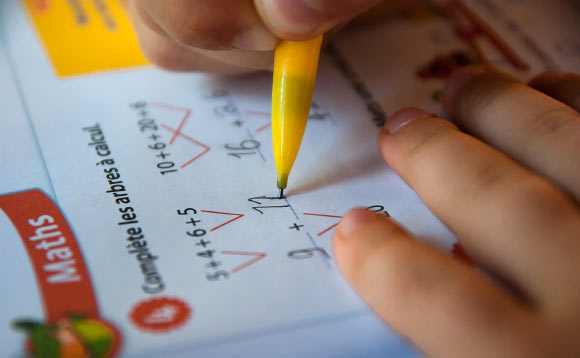Proficiency in reading and math is associated with a complex system of skills, some of which derive from personality traits. In new research, Dr. Margherita Malanchini from the University of Texas at Austin and colleagues found that characteristics related to openness, such as intellectual curiosity and confidence, made children more adept to take on math and reading than characteristics describing conscientiousness, such as diligence and perseverance.
Self-regulation describes the ability to control both behaviors and internal states against a backdrop of conflicting or distracting situations, drives, or impulses.
In the cognitive psychology tradition, individual differences in self-regulation are commonly measured with performance-based tests of executive functioning, whereas in the personality psychology tradition, individual differences in self-regulation are typically assessed with report-based measures of impulse control, sustained motivation, and perseverance.
“In prior studies, differences in academic skills have been linked to differences in self-regulation, or how well children can control their behaviors and internal states against a backdrop of conflicting or distracting situations, drives and impulses,” Dr. Malanchini and co-authors said.
“However, self-regulation is a very broad construct, incorporating both intellectual abilities, such as executive functioning, and personality traits, such as conscientiousness.”
To understand the underlying skills and characteristics of self-regulation and how they contribute to differences in reading and math proficiency, the scientists analyzed data from 1,019 twins (ages 7.8-15.5) in the Texas Twin Project.
Even after accounting for intelligence, the team found a strong link between executive functioning — the ability to plan, organize and complete tasks — and proficiency in reading and math. This link was largely explained by genetic factors.
Children who are higher in executive functioning demonstrated increases in levels of openness, intellectual curiosity and confidence. These links were attributed to shared genetic factors (60%) and environmental factors (40%).
However, the researchers did not observe the same for personality characteristics describing how conscientious and diligent a child is.
“This indicates that some of the genetic factors that predispose children to do well in school are also the same genetic factors that predispose children to be more open to new challenges, creative, intellectually curious and confident in their own academic ability,” said study co-author Dr. Elliot Tucker-Drob, also from the University of Texas at Austin.
“Our findings provide additional knowledge on the complex set of skills that interact and give raise to differences in academic achievement between children, as well as the complexity of genetic architecture of academic achievement, which is made of many parts beyond intellect,” Dr. Malanchini said.
The study was published in the Journal of Personality and Social Psychology.
_____
Margherita Malanchini et al. ‘Same but different:’ Associations between multiple aspects of self-regulation, cognition, and academic abilities. Journal of Personality and Social Psychology, published online December 13, 2018; doi: 10.1037/pspp0000224








